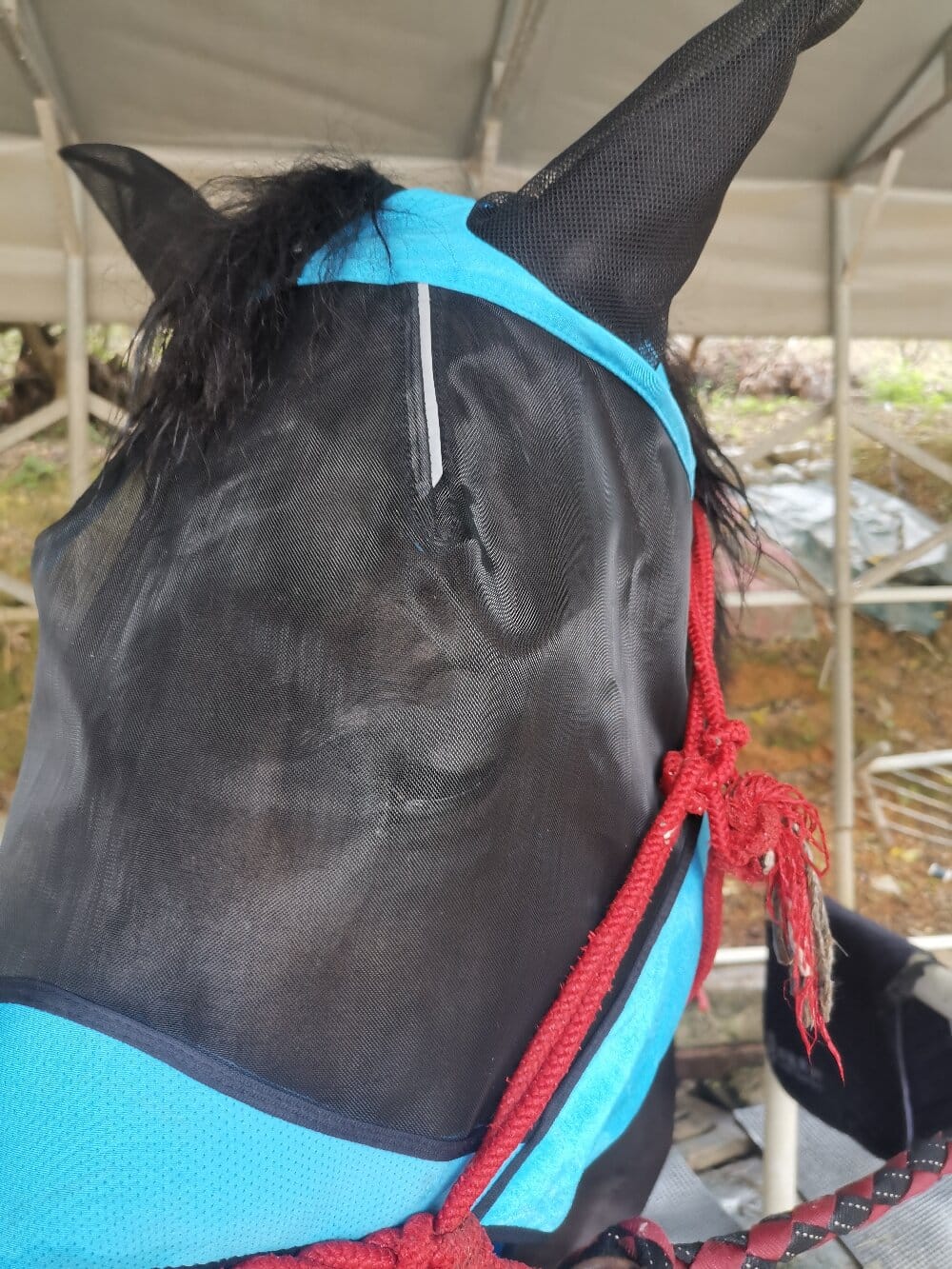As a seasoned equestrian, I’ve learned that a horse fly mask is more than just an accessory—it’s a necessity for protecting your horse’s eyes and face from irritating pests. Flies, gnats, and other insects can cause discomfort, infections, and even long-term damage if left unchecked. Whether you’re a professional trainer or a casual rider, investing in a high-quality fly mask can make a world of difference in your horse’s comfort and health. In this article, I’ll share industry insights on why these masks matter, how to choose the right one, and the benefits they offer beyond basic protection.
The Importance of Protecting Your Horse’s Eyes and Face
Horses are highly sensitive creatures, especially around their eyes. Flies and other pests are not just annoying; they can lead to serious issues like conjunctivitis, corneal ulcers, or even vision loss. A well-fitted fly mask acts as a barrier, shielding your horse’s delicate facial area from:
- Biting insects that cause painful welts
- Dust and debris that can scratch the cornea
- UV rays, which some masks are designed to block
Beyond physical protection, reducing irritation helps keep your horse calm and focused, whether during training or turnout.
Choosing the Right Horse Fly Mask: Key Features to Look For
Not all fly masks are created equal. Here’s what I’ve found to be the most important factors when selecting one:
- Material: Look for breathable, lightweight fabrics like mesh that allow air circulation while keeping pests out.
- Fit: A mask should stay securely in place without rubbing or restricting movement.
- UV Protection: Some masks offer SPF ratings, which are especially useful for horses with light-sensitive eyes.
- Durability: Reinforced stitching and tear-resistant materials ensure longevity.
- Ease of Cleaning: Machine-washable options save time and maintain hygiene.
Additionally, consider specialized designs like ear covers or extended nose flaps if your horse needs extra protection.
Common Misconceptions About Horse Fly Masks
Some horse owners hesitate to use fly masks, often due to myths I’ve encountered over the years. Let’s debunk a few:
- “My horse doesn’t need one.” Even if your horse isn’t visibly bothered, pests can still cause harm over time.
- “They’re uncomfortable.” Modern masks are designed for comfort, and most horses adjust quickly.
- “They obstruct vision.” High-quality masks use fine mesh that doesn’t impair sight.
Understanding these misconceptions can help you make an informed decision for your horse’s well-being.
How a Horse Fly Mask Enhances Performance and Comfort
From my experience, horses wearing fly masks exhibit fewer signs of stress and distraction. This is particularly important for:
- Competition Horses: Reduced irritation means better focus during events.
- Senior Horses: Older equines are more vulnerable to eye infections.
- Pasture-Raised Horses: Extended turnout increases exposure to insects.
A comfortable horse is a happy horse, and that translates to better performance and a stronger bond between rider and animal.
Final Thoughts on Investing in a Quality Fly Mask
After years in the industry, I can confidently say that a horse fly mask is a small investment with significant returns. It prevents health issues, improves comfort, and supports overall performance. Whether you opt for a basic design or a feature-rich model, prioritize quality and fit. Your horse will thank you—and you’ll enjoy the peace of mind that comes with knowing they’re protected.

